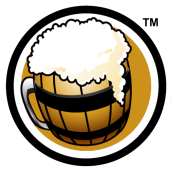Hops
|
Amount
|
Variety
|
Cost
|
Type
|
AA
|
Use
|
Time
|
IBU
|
Bill %
|
|
1.50 oz |
Centennial1.5 oz Centennial Hops |
|
Pellet |
10 |
Boil at 210 °F
|
60 min |
19.3 |
11.1% |
|
3 oz |
Cascade3 oz Cascade Hops |
|
Pellet |
7 |
Boil at 210 °F
|
20 min |
16.36 |
22.2% |
|
3 oz |
Cascade3 oz Cascade Hops |
|
Pellet |
7 |
Boil at 210 °F
|
10 min |
9.8 |
22.2% |
|
6 oz |
Lemondrop6 oz Lemondrop Hops |
|
Pellet |
6 |
Boil at 210 °F
|
0 min |
|
44.4% |
|
13.50 oz
/ $ 0.00
|
Hops Summary
|
Amount
|
Variety
|
Cost
|
IBU
|
Bill %
|
|
1.50 oz |
Centennial (Pellet) 1.4999999965689 oz Centennial (Pellet) Hops |
|
19.3 |
11.1% |
|
6 oz |
Cascade (Pellet) 5.9999999862754 oz Cascade (Pellet) Hops |
|
26.16 |
44.4% |
|
6 oz |
Lemondrop (Pellet) 5.9999999862754 oz Lemondrop (Pellet) Hops |
|
|
44.4% |
|
13.50 oz
/ $ 0.00
|
Mash Guidelines
|
Amount
|
Description
|
Type
|
Start Temp
|
Target Temp
|
Time
|
|
19.5 gal |
|
Strike |
157 °F |
152 °F |
60 min |
Starting Mash Thickness:
2.6 qt/lb
Starting Grain Temp:
70 °F |
Other Ingredients
|
Amount
|
Name
|
Cost
|
Type
|
Use
|
Time
|
|
0.50 oz |
Irish Moss
|
|
Fining |
Boil |
15 min. |
Priming
|
Method: co2
Amount: 6.68 psi
Temp: 30 °F
CO2 Level: 2.44 Volumes |
Target Water Profile
Balanced Profile
Notes
From midwest supplies:
Heat Strike Water:
Heat at least 20 gallons of water to 160–165º, depending on the temperature of your grain. Mash temperature should be 152º F.
Mash in:
Using a mash paddle, mix the crushed grain with the water. Make sure to mix it up well to avoid any dry pockets, or “dough balls”.
Once the mash is well mixed and sitting at 152º F, cover and let it rest for 60 minutes.
Sparge:
While your mash is resting, heat 5 gallons of water to 168º F. Perform a batch sparge to collect 7 gallons of wort and bring to a boil.
The Boil:
As soon as you see a rolling boil, set your timer for 60 minutes and add 0.5 oz Centennial hops.
Boil for 40 minutes then add 1 oz Cascade hops.
Boil for 10 minutes then add 1 oz Cascade hops.
Boil for 10 minutes then add 2 oz Citra hops and turn off heat. Allow to steep 10 minutes before chilling.
Cool and Aerating the Wort:
Cool the wort to below 80°F using an ice bath, adding ice made from boiled water to top off your full volume, or using a wort chiller (best method). Once your wort is below 80°F, transfer it into your primary fermentor, and take a hydrometer reading. See our FAQs for tips on taking a hydrometer reading.
Use One of These Methods for Aeration:
• Pour the cool wort between two sanitized buckets several times.
• Mix and stir vigorously for several minutes with a sanitized spoon.
• Aerate with the Midwest Supplies Aeration system for up to 10 minutes (7862).
• Add pure oxygen for 2 minutes with the Midwest
Supplies’ Oxygenation Kit 2.0 (40033).
Fermentation:
Pitch (add) your yeast and store your fermentor in a dark area with
a stable temperature of 65–72°F. Leave until primary fermentation is complete, usually between 7–14 days. If you’re unsure, take a hydrometer reading.
Optional, but highly recommended: Rack to a 5 gallon carboy for secondary fermentation and aging. Midwest recommends a 3 week secondary fermentation for this kit.
Dry Hops:
5-10 days before packaging the beer add 1 oz Citra and 1 oz
Cascade to the fermenter.

Last Updated and Sharing

- Public: Yup, Shared
- Last Updated: 2020-04-22 15:45 UTC
For quick copying and pasting to a text based forum or email.
Click the Download as HTML file button below.
Recipe costs can be adjusted by changing the batch size. They won't be saved but will give you an idea of costs if your final yield was different.
|
Cost $ |
Cost % |
| Fermentables |
$ |
|
Steeping Grains
(Extract Only) |
$ |
|
| Hops |
$ |
|
| Yeast |
$ |
|
| Other |
$ |
|
| Cost Per Barrel |
$ 0.00 |
|
| Cost Per Pint |
$ 0.00 |
|
| Total Cost |
$ 0.00 |
|
Discussion about this recipe:
